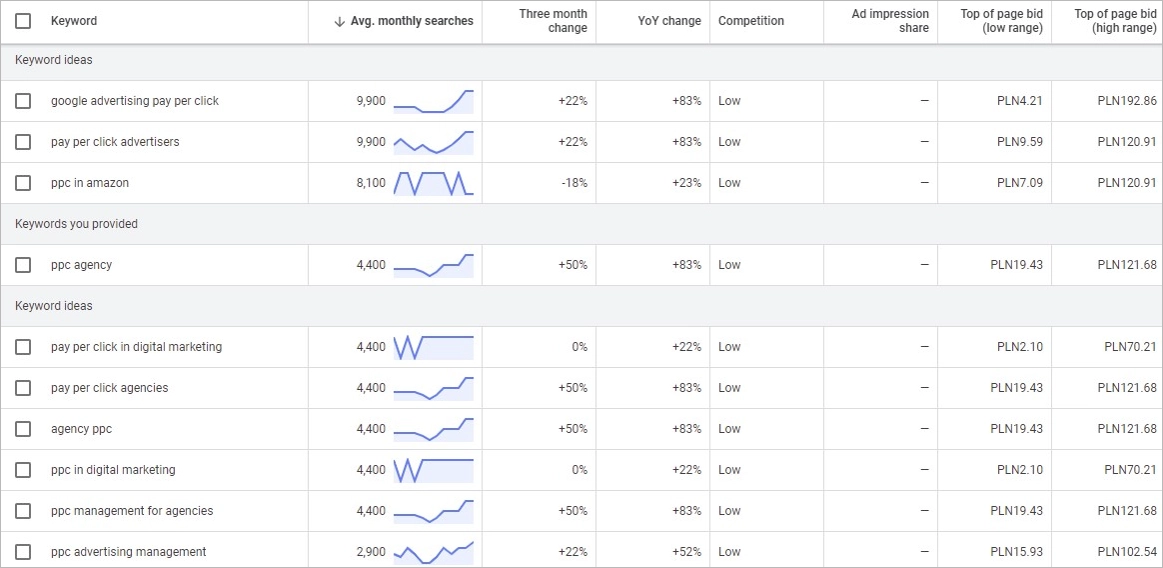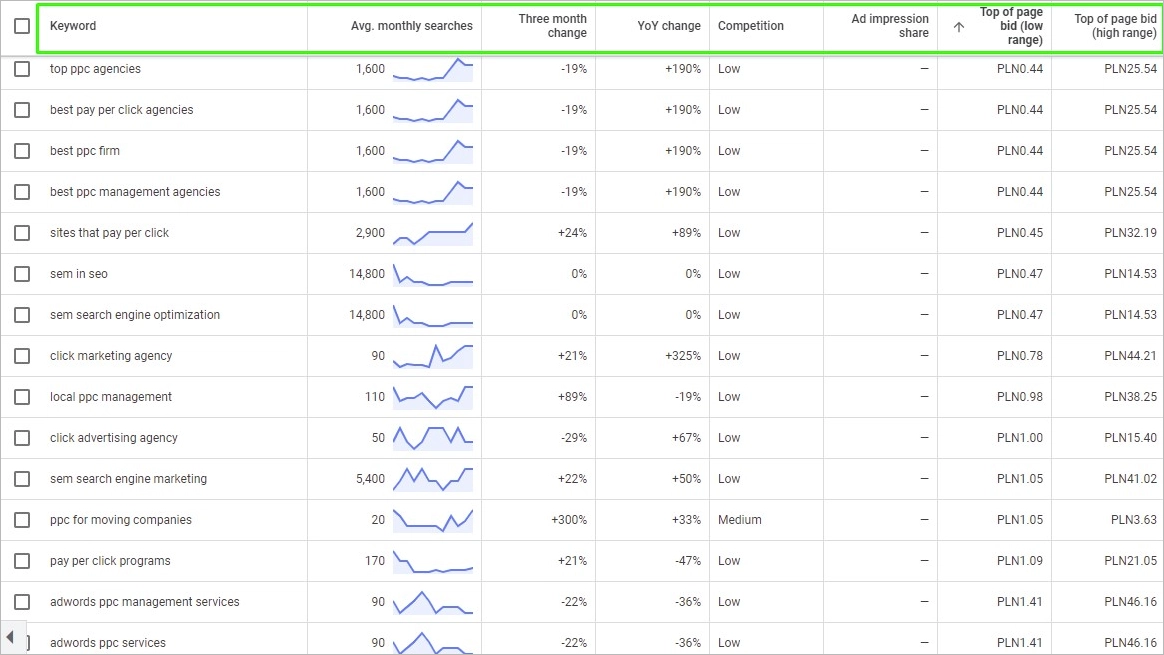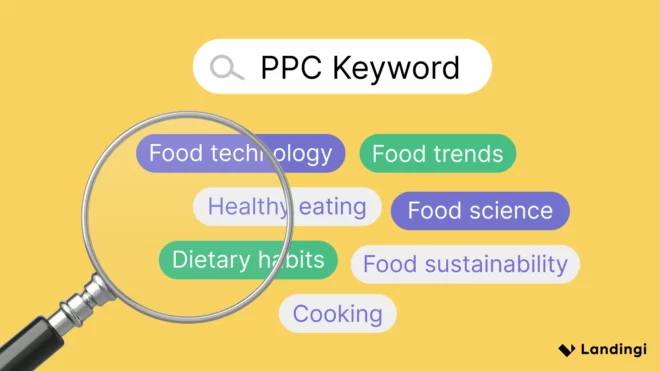Keywords are a permanent element of most PPC campaigns, as well as activities related to content marketing and website positioning and optimization for SEO. They are often the foundation and determinant of the success of advertising activities.
At the beginning, I will use words associated with Abraham Lincoln:
“Give me six hours to chop down a tree, and I’ll spend the first four sharpening the axe.”
The above sentence perfectly fits the topic of keywords, emphasizing their enormous importance and the amount of work that should be devoted to their proper preparation from the beginning. Otherwise, just like with a dull axe, little will be achieved, the work will be clunky, and the results will be far from ideal – poor, irrelevant or hastily prepared keywords will probably not bring the expected outcomes.
Therefore, well-chosen keywords say who we want to reach and what stage of purchasing our target audience is at.
Make your sections smartable and let go of mundane manual tasks with Smart Sections! An easy way to manage bulk changes.
What is PPC in keyword research?
Keyword research for PPC campaigns involves identifying and selecting relevant keywords that advertisers pay for each time a user clicks on their ads. Therefore, well-chosen keywords say who we want to reach and what stage of purchasing our target audience is at.
How do I find the right keywords for PPC?
Finding the right keywords for PPC requires understanding your target audience and their needs, analyzing market trends, and using keyword research tools. Start by brainstorming potential keywords that align with your business offerings and customer search intent. Tools like Google Keyword Planner or SEMrush can provide valuable data on search volume, competition, and cost-per-click (CPC) estimates, helping to refine your choices.

How to find the best keywords for AdWords?
To identify the best keywords for AdWords:
- Consider relevancy, search volume, and competition.
- Utilize Google Keyword Planner to discover keywords related to your business and assess their potential.
- Prioritize keywords that are highly relevant to your products or services but with lower competition, as they can offer a more cost-effective approach.

How to find the best keywords for Amazon?
For Amazon, keyword research can be done in several ways. The first method is brainstorming based on how a given product is searched for. The second method is autocomplete in the search bar and analyzing competitor product descriptions. The third method uses keyword research tools such as Google Keyword Planner, Keywordtool, Ubersuggest, Semstorm, and many other similar tools. Notably, starting keyword analysis with brainstorming is worth finishing with one of the abovementioned tools. Final verification will allow us to avoid inaccurate assumptions.

Keyword Research in 4 Steps
We should not treat keyword research and analysis as something we do once and for all. Keyword Research should be a process that we constantly monitor, verify, and improve.
Identify your audience
The first step is understanding your customers, what they seek, and how they search. Improperly defined audience groups will affect the results.
Use Keyword Tools
Tools such as Google Keyword Planner, Keywordtool, and Ubersuggest allow you to check the popularity of a specific keyword, e.g., search volume, competition, trend, and sometimes even the average cost per click. When analyzing keywords, it is worth considering long-tail keywords that should lead to conversions at a lower cost.
Analyze the competition
Check what keywords your competition is using. Get inspiration and ideas and verify them all with the tools.
Verify and improve
Continuously monitor the performance of your chosen keywords and adjust them as needed. Over time, new keywords may appear, and the trend or method of searching for a specific product and service may change. So be vigilant and take care of the quality of your keywords at all times.
What are the best PPC keyword tools?
The best PPC keyword tools are Google Keyword Planner, Ahrefs, Semrush and Surfer SEO. These tools offer comprehensive data on keyword trends, search volume, competition and more, helping you create effective PPC campaigns.
What to avoid while doing PPC keyword research?
When conducting PPC keyword research, avoid the following:
- Ignoring long-tail keywords that may be less competitive, more targeted and cheaper.
- Ignoring search intent because intent is crucial in matching keywords to user needs.
- Relying solely on high-volume keywords can be very competitive and expensive.
How many keywords should you use for PPC?
A PPC campaign’s ideal number of keywords varies, but focusing on quality over quantity is crucial. A well-curated list of 15-30 highly relevant keywords is often more effective than a more extensive list of less applicable keywords.
What is the difference between SEO and PPC keyword research?
SEO keyword research focuses on organic search rankings and emphasizes long-term content relevance and user intent. PPC keyword research, on the other hand, is more immediate and conversion-focused, often targeting specific, high-intent keywords for quick results.
Conclusion
Effective PPC keyword research is a critical component of successful online advertising. By understanding your audience, utilizing the right tools, and continuously refining your approach, you can significantly enhance the impact of your PPC campaigns. Remember, the key to PPC success lies in choosing the right keywords that align with your business goals and your audience’s needs. If you need strong professional support, contact our certified Google Ads and Google Analytics experts at DevaGroup.








